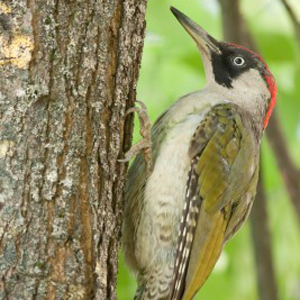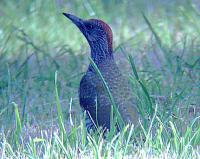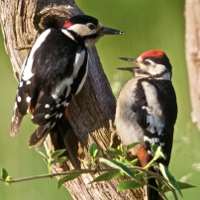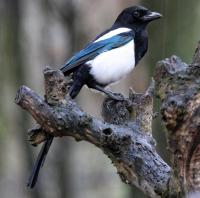- Home
- FAQs
- Customer Video Gallery
- Customer Photo Gallery
- Bird Facts
- Bird Food Blog
- Bird Information
- Feeding Advice
- Small Animal Information
- A to Z of Guinea Pigs
- A to Z of Hamsters
- A to Z of Rabbits
- Basic Care for Guinea Pigs
- Basic Care for Hamsters
- Basic Care for Rabbits
- Basic care for Chinchillas
- Basic care for Ferrets
- Basic care for Gerbils
- Basic care for Mice
- Basic care for Rats
- Buying a Healthy Small Animal
- Does your Reptile need a Licence
- Equipment for Ferrets
- Equipment for Hamsters
- Equipment for Mice
- Equipment for your Chinchilla
- Equipment for your Gerbil
- Equipment for your Guinea Pig
- Equipment for your Rabbit
- Keeping a House Rabbit
- Dog Information
- Cat Information
- Customer Information
- Fat Balls
- Suet Pellets
- Straights
- Seed Mixes
- Suet Treats
- Mealworms
- Bird Feeders
- My Account

| Scientific Name | Picus viridus |
| Breeding | late-April |
| Fledge Days | 21-24 |
| Incubation Days | 19-20 |
| Lifespan | 8-10 |
| Number of Clutches | 1 |
| Number of Eggs | 4-6 |
| Size | 30 - 36cm |
| Weight | 190g |
| Wingspan | 41cm |
Bird Family : Woodpeckers
Green Woodpecker Facts - Information About Green Woodpecker
Green Woodpecker - Picus Viridis
Our only ‘Green’ woodpecker and the largest of the three common species. The Green Woodpecker is our only Woodpecker that is perfectly happy feeding on the ground as you can see on the photo. Green Woodpeckers have a particular fondness for ants, and will search for anthills to feed at. Often called the Yaffle after its laughing song.
The Green Woodpecker is a common breeding resident in the UK with over 50,000 pairs. The Green Woodpecker occurs in most counties throughout the UK, less numerous in Scotland and totally absent in Ireland.
Green Woodpeckers occur in deciduous and mixed woodland throughout the UK, woodlands, parks, gardens, indeed any open country habitat with suitable large trees.
Green Woodpeckers are very adaptable food wise and will take ants, larvae, Seeds and Fruit.
Several call notes; most often associated is a loud laughing ‘kla kla kla kla kla kla kla’.
Our only ‘Green’ woodpecker and the largest of the three common species. The Green Woodpecker is our only Woodpecker that is perfectly happy feeding on the ground as you can see on the photo. Green Woodpeckers have a particular fondness for ants, and will search for anthills to feed at. Often called the Yaffle after its laughing song.
Identification:
Adult
- Adult males and females are very alike.
- Green Woodpeckers are a full 4 inches larger than Great Spotted Woodpecker and close in size to Jackdaw.
- They cannot be confused with any other British Woodpecker.
- Adult upperparts, dark greeny brown tail, bright yellow rump.
- Moss green back and wings.
- Head, bright red forehead, crown and nape (full cap) which joins with the green back on the nape.
- Black lores and eye surround.
- Black moustache with red centre (in males) and solid black in females.
- Head sides are pale grey as is throat, breast, chest and belly.
- Undertail coverts are barred dark grey.
- In flight the wings show a black and white chequered trailing edge.
- Bill grey, legs black, eye white.
- Unlike the other Woodpeckers the Green very rarely drums.
Juvenile
- Juveniles appear from April onwards and are similar to adults.
- Young birds show all the features of adults but it is coarsely marked.
- The head, breast and belly are all streaked/barred black.
- The green upperparts are dappled with white sots and barring.
- Bill black, legs black, eye white.
Status and Distribution
The Green Woodpecker is a common breeding resident in the UK with over 50,000 pairs. The Green Woodpecker occurs in most counties throughout the UK, less numerous in Scotland and totally absent in Ireland.
Habitat/Food
Green Woodpeckers occur in deciduous and mixed woodland throughout the UK, woodlands, parks, gardens, indeed any open country habitat with suitable large trees.
Green Woodpeckers are very adaptable food wise and will take ants, larvae, Seeds and Fruit.
Song/Call
Several call notes; most often associated is a loud laughing ‘kla kla kla kla kla kla kla’.







